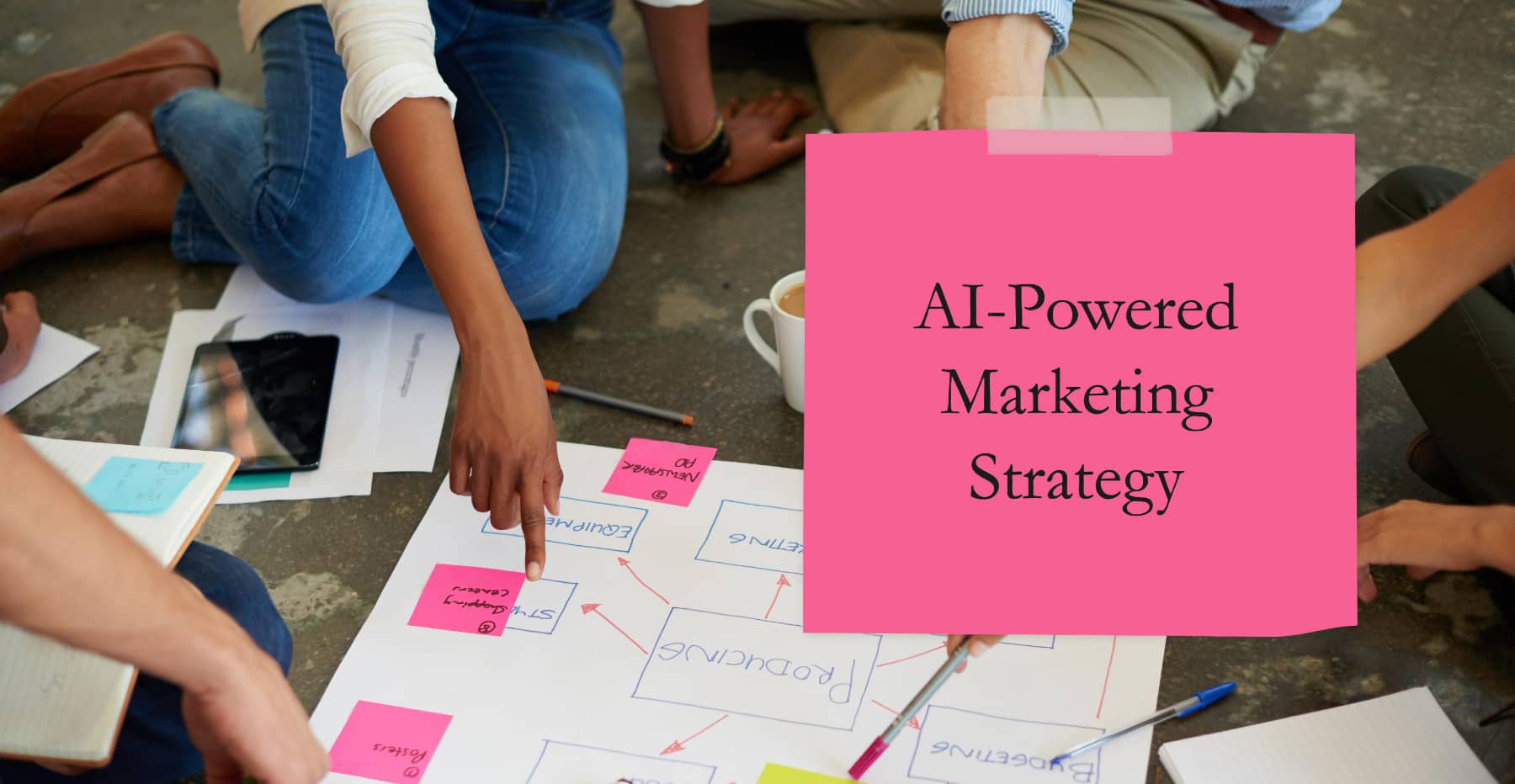Marketing is rapidly evolving in the age of artificial intelligence (AI). As AI continues to transform businesses, an AI-powered marketing strategy has become crucial for success. Recent studies show that AI can help boost marketing return-on-investment by as much as 10 times. With the ability to gain data-driven insights, automate repetitive tasks, and hyper-personalize customer experiences, AI has the potential to completely redefine marketing.
However, while interest in AI marketing continues to grow rapidly, many businesses still struggle to implement it effectively. Without a solid understanding of AI capabilities or a clear strategy for integration, itâs easy to become overwhelmed. Common barriers businesses face include unclear objectives, lack of technical expertise, data complexity issues, and failure to gain stakeholder buy-in.
This article will serve as a comprehensive guide on using AI to transform your marketing strategy. We will cover:
What is AI Marketing: A clear definition of AI marketing and its key capabilities regarding marketing automation, customer insights, content creation, campaign optimization, and more.
Use Cases of AI in Marketing: An overview of the diverse applications of AI across key marketing functions like lead generation, customer segmentation, personalization, predictive analytics, etc.
Developing an AI-Powered Marketing Strategy: A step-by-step guide on assessing your needs, identifying AI solutions, selecting tools, integrating AI in your workflows, and tracking performance.
Future Trends in AI Marketing: Emerging innovations you need to watch out for to stay ahead of the curve and ensure long-term success.
By the end of this article, you will have clarity on how to effectively leverage artificial intelligence to achieve your most ambitious marketing goals and outcomes.
Understanding AI in Marketing
Artificial intelligence is transforming marketing in incredible ways. But before diving into strategy, let's build a foundation of what AI marketing actually entails.
What is AI Marketing?
AI marketing refers to leveraging artificial intelligence technologies to automate, optimize, and enhance marketing operations. This includes using machine learning, natural language processing (NLP), and data analytics techniques to achieve business growth objectives.
At its core, AI marketing aims to:
Gain deeper customer insights through big data analysis
Automate repetitive tasks like data entry and reporting
Personalize content and experiences based on user data
Continuously optimize performance of campaigns
Predict future trends and behavior via predictive analytics
With these capabilities, AI marketing helps businesses boost efficiency, increase conversions, improve targeting, and make better data-driven decisions.
Use Cases of AI in Marketing
AI is extremely versatile when it comes to marketing applications. Some of the most popular use cases include:
Content Creation
AI content tools leverage natural language generation to automate content writing for blogs, product descriptions, social captions, and more. For instance, tools like Jasper can draft entire blog posts based on a simple headline idea to significantly accelerate content creation.
Personalization
Using data points like purchase history and website behavior, AI algorithms power hyper-personalized experiences across channels - from customized product recommendations to dynamic website content tailored for each visitor. This dramatically improves conversion rates.
Marketing Automation
By analyzing past performance data and customer journeys across email, social media, ads, and other channels, AI marketing automation tools can optimize campaign timing, frequency, segmentation, and other parameters completely automatically to improve results.
Customer Segmentation and Targeting
Sophisticated machine learning techniques enable granular customer segmentation and lookalike modeling for highly-targeted campaign strategies. Tools like JupiterOne even incorporate external threat intelligence to classify risky user groups.
Marketing Analytics and Optimization
AI establishes clear links between marketing activities and pipeline contribution. Platforms like Metadata offer attribution modeling to demonstrate ROI across acquisition channels. Integration with bid management and ad servers also enables real-time budget allocation optimization based on campaign performance.
Examples of AI Marketing Tools
The applications of AI in marketing are truly limitless, with new innovations emerging daily in this rapidly advancing domain. Next, let's explore how to develop a robust AI-powered marketing strategy tailored for your unique business needs.

Developing an AI-Powered Marketing Strategy
Now that we've covered the core concepts, let's walk through the step-by-step process for integrating AI into your marketing strategy.
Step 1: Assess Your Marketing Needs
First, take time to thoroughly evaluate your current marketing processes, objectives, target audience, pain points, and data infrastructure. Key assessment criteria include:
Business Goals: What KPIs are you aiming to improve - lead gen, conversions, engagement etc?
Current Workflows: Which tasks are inefficient or manual that could be automated?
Data Landscape: What martech tools and data sources exist? How can they be consolidated?
Target Audience Insights: What more needs to be understood about your customers to improve personalization?
Gaining clarity on these fronts is crucial before defining an AI approach - they should guide your strategy and tool selection.
Step 2: Identify AI Marketing Applications
Next, research relevant AI applications that can address your priorities and needs identified in the assessment stage.
Some ideas to spur thinking:
Use conversational AI chatbots to qualify leads 24/7
Employ intelligent lead routing algorithms to assign high-scoring leads automatically
Leverage personalized email content blocks to boost engagement
Implement dynamic ad creatives tailored to user preferences
Experiment with unique applications that align to your goals.
Step 3: Select and Implement AI Marketing Tools
With target applications defined, vet vendor solutions that best deliver the capabilities needed. Key selection criteria include:
Functionality Fit
Core features match use case requirements
Integrates well with existing martech stack
Provides access to specialized AI models
Ease of Use
Intuitive and simple UI/UX
Detailed documentation and onboarding support
Total Cost of Ownership
Fits budget constraints
Scales easily with enterprise growth
Once purchased, focus on user training, governance, and seamless integration with workflows.
Step 4: Integrate AI into Marketing Workflows
Smooth adoption requires changing processes to fully incorporate AI. Marketing and technology teams should collaborate closely.
Assign AI platform ownership across departments
Define new SOPs accounting for automation
Set up mechanisms for continuous feedback
Adapt frameworks like marketing ops to facilitate cross-functional coordination in campaign design, asset production, and performance tracking with AI tools embedded.
Step 5: Track Performance & Optimize
Meticulously measure marketing and sales impact across dimensions like pipeline growth, funnel drop-off rates, campaign ROI etc. Identify areas of over and underperformance.
Continuous experimentation is critical - use A/B testing capabilities and iteratively enhance algorithm training over 6-12 month periods until targets are achieved.
With robust tracking and optimization mechanisms, harness the true advantages of an AI-powered strategy.

Leverage AI to Unlock Marketing Potential
Implementing AI to enhance marketing strategy may seem daunting initially. However, as illustrated in this guide, it is undoubtedly worth the effort and investment.
By assessing your needs, identifying target applications, selecting the right tools, integrating workflows, and tracking performance - any business can reap AI's benefits for marketing success. Key advantages include:
10X improvements in campaign efficiency and productivity
15-30% increases in customer conversion rates
40% faster creation of high-performing marketing assets
Double-digit gains in revenue and pipeline growth
The data shows clearly that AI-powered marketing strategies drive tangible business value. What's more, innovations in natural language processing, predictive analytics, conversational interfaces and more will only expand AI's capabilities for marketers in the years ahead.
As marketing continues to grow more complex, establishing an AI-first approach now will ensure sustained competitive differentiation. The time for adoption is now. So start small, focus on addressing top pain points, and evolve usage over time to transform marketing at your organization with intelligent solutions.


